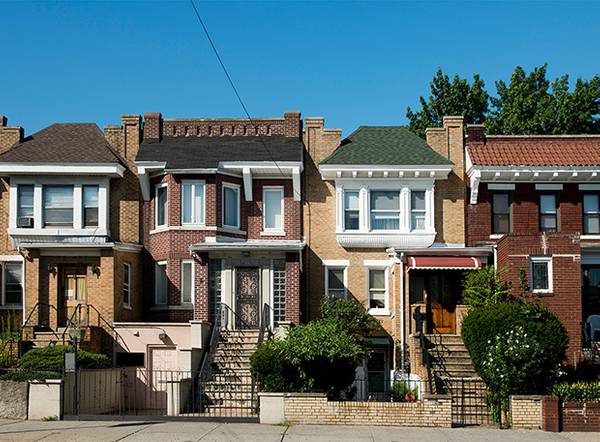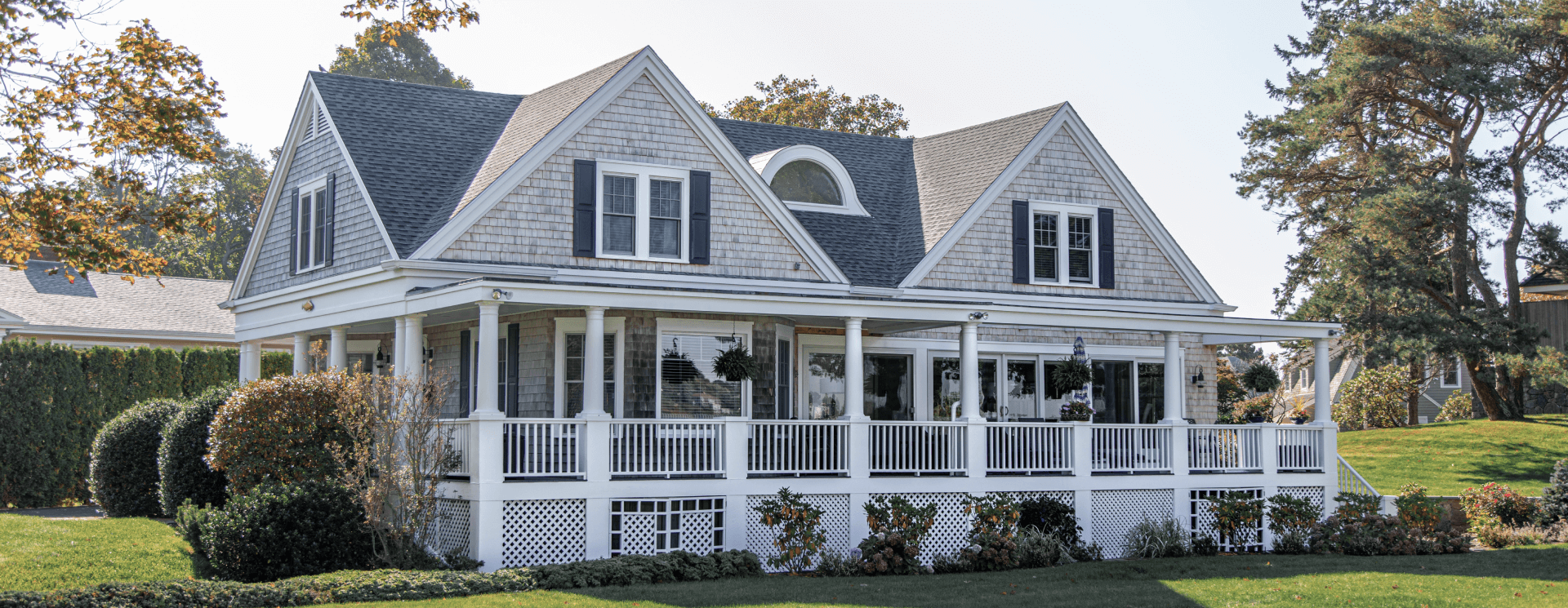
What does it mean to refinance your home?
Refinancing your home means replacing your current home loan with a new one.
Generally, a homeowner will refinance their mortgage when they want to access some of the equity in the home and/or are looking for new loan terms that can improve their short- or long-term financial picture.
Similar to how a homeowner took out their original mortgage, they will have to go through a qualification and approval process for the new loan.
What are the benefits of refinancing your mortgage?
There are a variety of benefits to refinancing a mortgage. Below are some of the most common reasons to consider refinancing a mortgage.
- Reduce the monthly payment. Many people refinance for this reason when interest rates drop. Why pay more for a loan than necessary? If a homeowner can’t find lower interest rates, they can also reduce monthly payments by taking out a loan with a longer term — 30 years rather than 15, for example. Homeowners should only consider this if they really need to lower current expenses, however, because they generally pay more interest overall with a longer-term loan.
- Eliminate FHA mortgage insurance. This will also reduce a homeowner’s monthly expenses. While private mortgage insurance, also called PMI, on conventional loans can be cancelled, the only way to get rid of FHA insurance is generally to refinance a mortgage once enough equity has been built up.
- Pay off the loan faster. Homeowners can get a new loan with a shorter term to pay off a house sooner. Refinancing can allow homeowners to pay more per month than when they first got the loan. Paying more per month can enable homeowners to reduce the total time spent paying down the loan in anticipation of important financial milestones like a child reaching college, weddings, or retirement.
- Lock in a fixed interest rate. If a homeowner has an adjustable-rate mortgage and interest rates are starting to inch up, it can be smart to switch to a fixed-rate loan. Fixed-rate loans can provide more financial stability and make planning for the future easier.
- Get cash. If a homeowner wants money for home improvement, college tuition, debt consolidation or any other major expense, a cash-out refinance allows them to tap into the equity of their home. A homeowner borrows more than they owe on the current loan and the lender pays the difference out to them directly. Homeowners can also change the rate, term or type of loan in a cash-out refinance. It is all worth noting that because a loan is secured by the home that borrowers will likely be able to obtain lower interest rates versus an unsecured loan option such as a personal loan or credit cards.
How to refinance a mortgage
Gather Relevant Information
The first step in refinancing should be to become clear about the overall goal of getting a new loan. The next step in mortgage planning is to gather personal financial information. Homeowners will need to meet the same qualifications as they did for a first mortgage to be eligible for refinancing.
- Credit score. As with any loan, higher scores will provide a homeowner a stronger chance of being approved for a refinance loan as well as better rate options.
- Fix any credit problems. Homeowners should challenge any incorrect information on their credit record and have it changed. Other ways to build up a credit score include paying down other debt, making sure regular payments are on time, keeping the balances low on accounts, etc.
- Assemble proof of income. Homeowners will need to establish proof of income by providing recent pay stubs, federal tax returns, bank statements, etc.
- Calculate home equity. Home equity is the value of a home in excess of what is owed the bank on the mortgage. To figure the amount, refer to the current mortgage statement for the balance owed. Online home search sites or a real estate agent can help find the current estimated value of a home. It is possible for a homeowner to receive better rates from a lender if they have more than 20 percent equity of their home.
Understand Refinance Rates
Homeowners will want to regularly check with lenders to find the best mortgage refinance rates. At Bethpage, we post up-to-date mortgage rates right on our website for convenience.
Two of the most common mortgage loan products are Fixed-Rate Mortgages (FRMs) and Adjustable-Rate Mortgages (ARMs). A homeowner looking to refinance their current mortgage will likely select a loan from one of these two options.
- Fixed-Rate Mortgage – This option offers a set principal and interest payment for the life of the loan. Fixed-rate mortgages are ideal for first-time home buyers due to their relative simplicity and for those owners looking to stay in their home for many years. FRMs are best suited for those who expect their income to remain stable over an extended period of time.
- Adjustable-Rate Mortgage – ARMs offer a lower initial payment, but principal and interest will vary over time as shifts in the market dictate changes. Adjustable-rate mortgages are typically ideal for homeowners who may want to sell their house in a few years and/or those who anticipate an increase in income over time.
Outside of the loan itself, homeowners should also be sure to pay attention to fees. Lenders sometimes offer “no-closing cost loans” where they will cover the upfront closing costs, but charge a higher interest rate over the lifespan of the loan. Full closing costs for mortgages will be listed in a loan estimate, which can be used to compare to no-closing cost loan estimates to see which option is best.
While both banks and credit unions offer mortgages, the best mortgage refinance rates are often offered by credit unions to their members. That’s because credit unions are nonprofit and the members are also the owners.
Calculate New Mortgage Payments with a Mortgage Rates Calculator
Probably the most frequently asked question by homeowners looking to refinance their mortgage is simply, “What will my new monthly payment be?”. Every homeowner has a preferred rate that fits their budget, so it is important to do the proper due diligence before deciding if refinancing is the best option. The quickest way to estimate new monthly payments is to utilize a special mortgage rates calculator like the one created by the mortgage refinance experts at Bethpage.
Talk to a Lender
It helps for homeowners to apply for a new mortgage at a local financial institution, where local mortgage experts are available to walk you through the process. A local mortgage expert can help homeowners make the right decision about refinancing, understand different types of mortgage products, explain all the steps to approval, work with them through any challenges that might come up, and help ensure financial goals are met.
Refinancing with Bethpage Federal Credit Union
At Bethpage, we are committed to enriching the lives of our members and our communities by being a trusted financial partner committed to excellence. We have a strong track record of helping our members fulfill the dream of home ownership. Dedicated Bethpage loan consultants will work with you every step of the way to ensure that you are able secure the loan that best fits your needs. We offer a range of mortgage products to meet the needs of our first-time buyers and refinancers.
Fixed-Rate Mortgages — set principal and interest payment for the life of the loan
Adjustable-Rate Mortgages — ower initial payment, but principal and interest will vary over time as shifts in the market dictate changes
VA Mortgages — eligible military veterans, reservists, and Active Duty personnel, and eligible spouses, can receive special offers upon speaking with a Bethpage loan consultant (800-628-7070)
Jumbo Mortgages — loan amounts from $510,401 to $1.5 million for 1-4 unit properties
FHA Mortgages — federally insured, with lower downpayment requirements and less restrictive qualifications
10-Year Fixed Debt Buster — fixed low rate and short term for interest savings and faster pay off
Investment Property Mortgages — fixed- rate loans up to $1 million for investment properties
[3] All calculations received by using the calculator tools on this page are estimates only.
- Categories:


